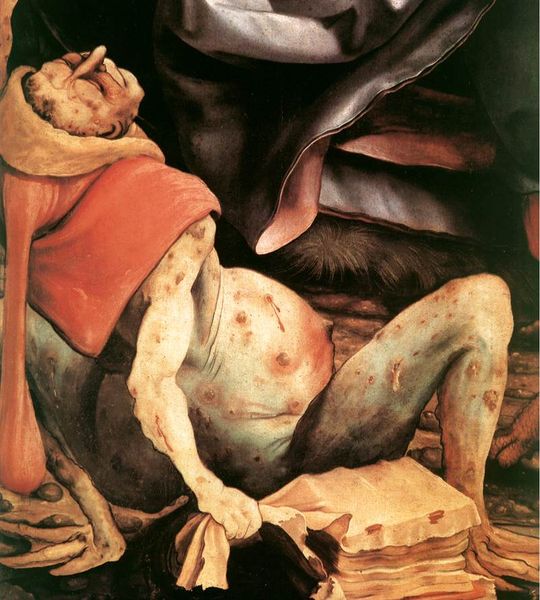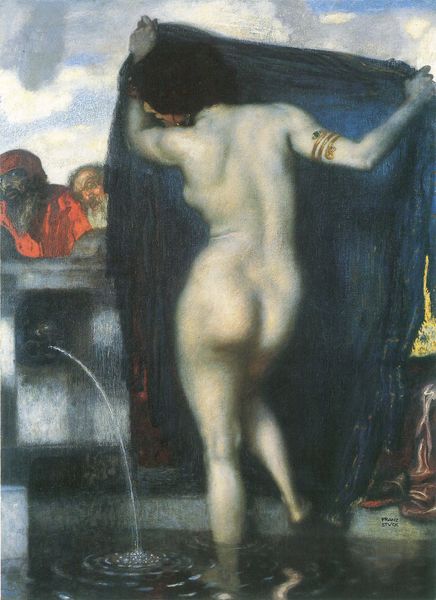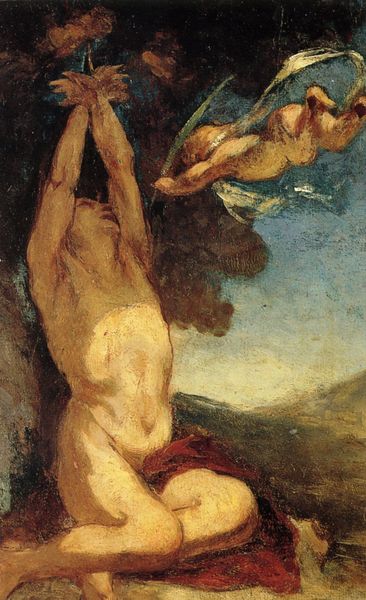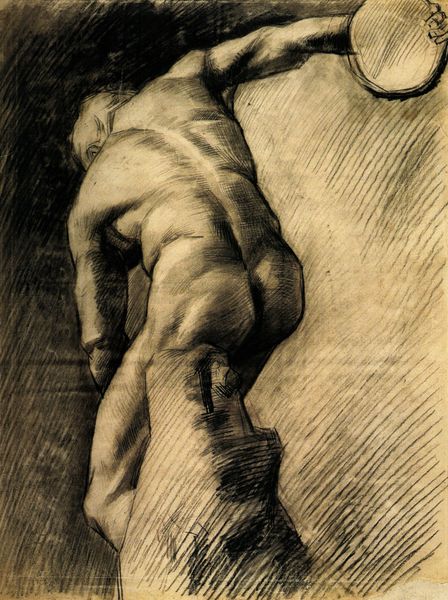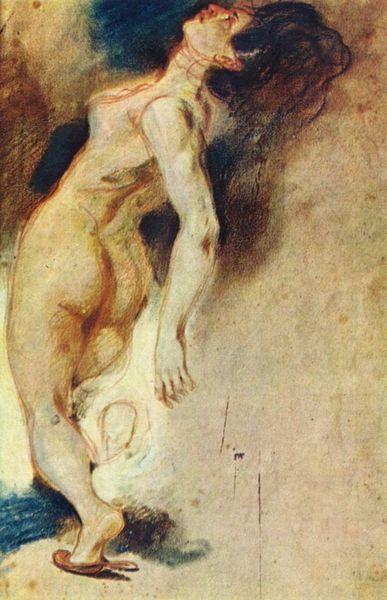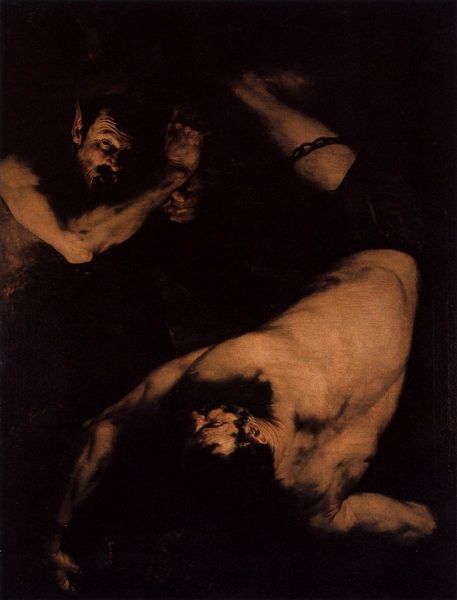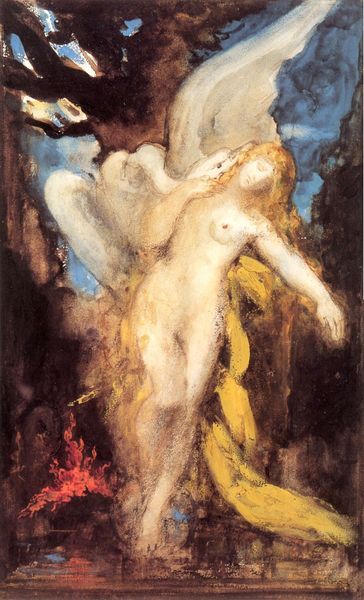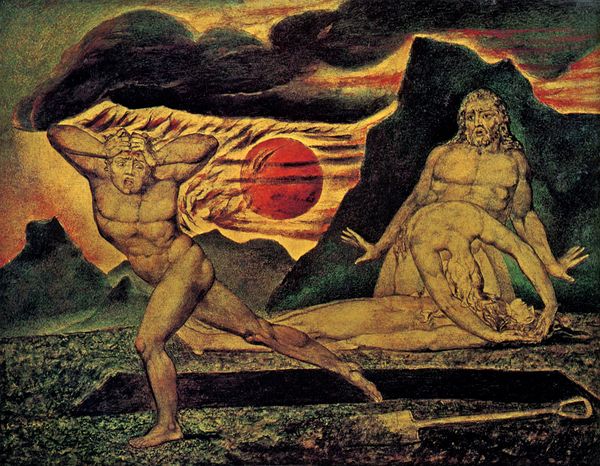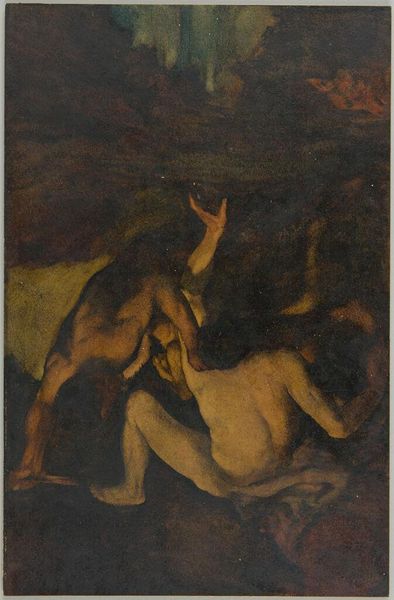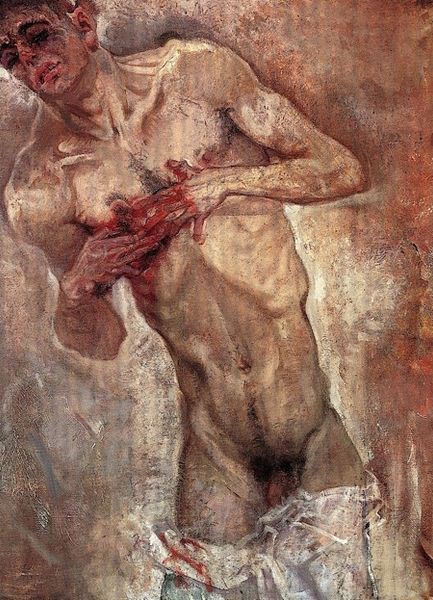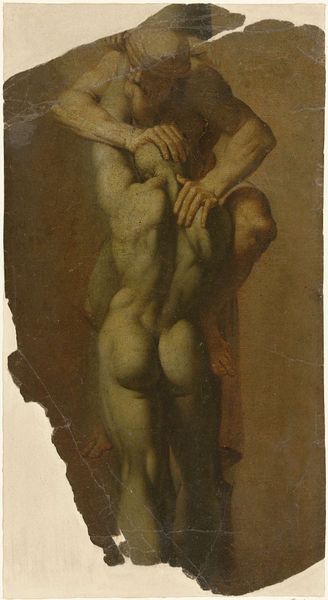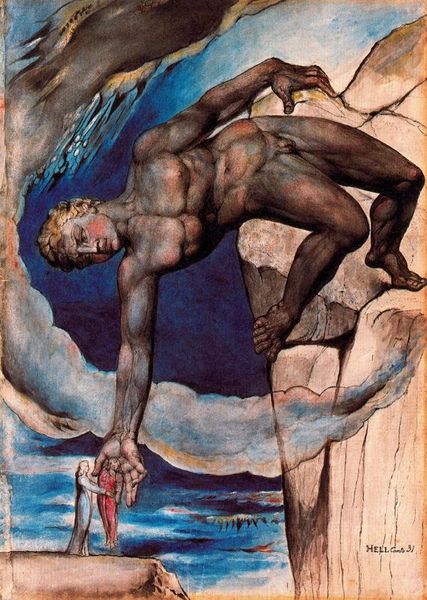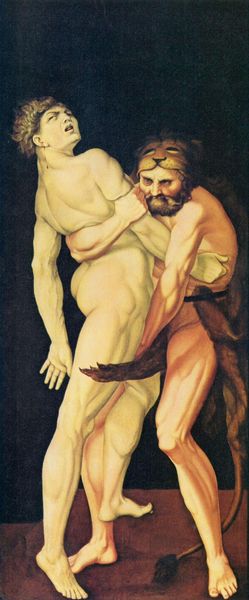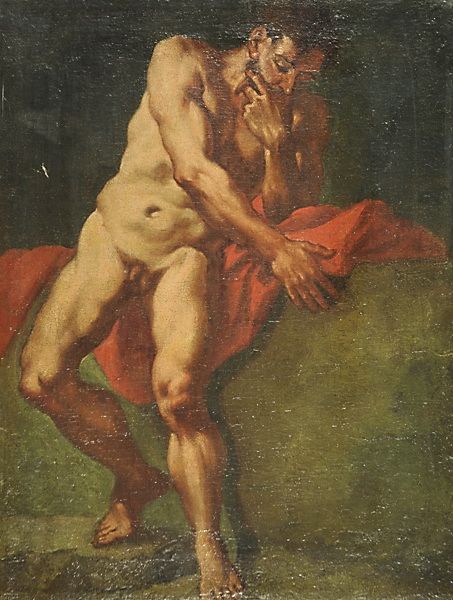
oil-paint
#
oil-paint
#
figuration
#
oil painting
#
roman-mythology
#
mythology
#
symbolism
#
history-painting
#
nude
#
male-nude
Copyright: Public domain
Franz von Stuck painted "Sisyphus," an oil on canvas, at the turn of the 20th century in Germany, during a time of rapid industrialization and social change. The image depicts a nude man straining to push a massive boulder up a steep incline, against a fiery red sky. It embodies the ancient Greek myth of Sisyphus, condemned to eternally repeat this futile task. In Stuck’s rendition, Sisyphus’s plight mirrors the anxieties of modern life, reflecting the psychological toll of relentless labor in a society grappling with its own moral decline. Stuck's work challenged the prevailing academic art traditions of his time, aligning with the avant-garde movements that sought to disrupt conventional artistic and social norms. To truly understand Stuck’s "Sisyphus," one must consider the socio-political currents of his time, researching manifestos, exhibition catalogs, and contemporary critical responses. This provides a crucial context for appreciating the artwork’s subversive power.
Comments
No comments
Be the first to comment and join the conversation on the ultimate creative platform.
